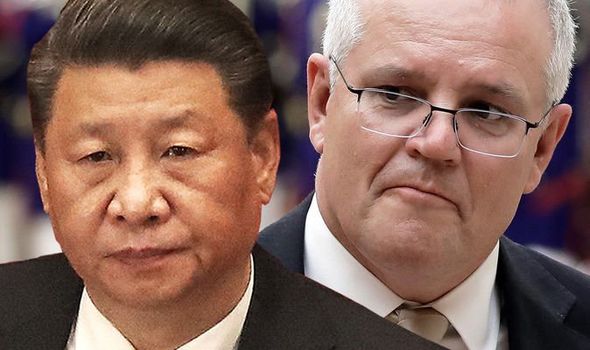Australia has been at the receiving end of a trade war that has been waged against it by China for getting too nosy in certain sensitive matters for Beijing, such as calls for an independent and open investigation into the origins of Covid-19, and the need to address growing Chinese belligerence across the Indo-Pacific. Since April last year, China has imposed tariffs and other trade barriers and even unofficial restrictions on a range of Australian goods like coal, barley, wine and wheat. However, what China’s trade war has done is help Australian businesses diversify their supply chains.
Now, the Australian economy has emerged more resilient than it has ever been. Acting on the same, the Scot Morrison government is now calling on Australian businesses to not solely depend on China as their target market. This message goes out to all businesses, cutting across sectors. So far, only those sectors which China has targeted have been able to diversify their supply lines. Now, Canberra is looking to up the ante against China, and really make Australian businesses depend on markets around the world other than those of China alone.
Australia’s ‘China Plus’ Strategy
The Australian government has now instituted a number of support mechanisms for businesses to seek new markets, diversify supply chains, and make up for lost exports to China with new markets. The Scott Morrison government is convincing businesses that relying on China is not a feasible long-term policy. In line with the same, Australian Treasurer Josh Frydenberg announced a new trade policy, which he referred to as ‘China Plus’.
What Frydenberg has convincingly conveyed to not just Australian businesses, but also China is the fact that the loss in trade with China has largely been compensated by expanded trade with other markets. Exports to China of the goods targeted by Beijing have fallen by about $5.4 billion over the year to the June quarter, but increased to the rest of the world by $4.4 billion.
Earlier this month, Frydenberg said, “We would both be better off if markets were allowed to operate freely. Nevertheless, the Australian economy has shown itself to be highly resilient. Our economy has continued to grow strongly. Australian firms have pivoted, by finding new buyers for their goods. And global markets have responded, redirecting Australian commodities. That is the benefit of a strong, dynamic, open, market-based economy.”
The Australian treasurer, much to the dismay of the CCP, called on all Australian businesses to move away from China. He said, “They should continue to pursue these opportunities where they can. But … businesses also need to be aware that the world has changed. They should always be looking to diversify their markets, and not overly rely on one country. Essentially, adopting a ‘China-plus’ strategy.”
Businesses advised to adopt a "China plus" strategy.
Don't have a business model which depends solely on China. If the opportunity arises to sell goods to China then it can be used as an optional add-on, but be prepared to dump it at short notice. https://t.co/XC5mW3WD4w pic.twitter.com/73SiOBgZ9F— All_autocrats_to_Pluto (@Gjmelio) September 26, 2021
Bad News for China’s Economy
The effects of China’s import embargo on Australian coal are showing already. As reported by TFI recently, China’s coal plants may have to halt output because of low inventories, while there is a risk electricity generators will be unable to secure supply this winter. If all Australian businesses shift their markets from China to other countries, the paper dragon will come to face a severe crisis across sectors. Already, China’s coercive economic campaign is doing it more harm than good.
So far, what China has achieved is rather minuscule. There was only a $6 billion drop in Australian exports to China, that is, a mere 4 per cent fall as against the 2019 numbers. As per the data released by Beijing’s customs agency, Australia exported goods worth $148 billion ($US114.8 billion) to China last year. This is a small decline against the record level of exports worth $154 billion ($US119.6 billion) set in 2019. Additionally, in contrast to rising Australian exports to China – of items as crucial as iron ore – Australian investments in China have gone down by a whopping 25 per cent over the past year.
China imports $136 billion worth of iron ore from Australia every year. In fact, last year, 81 per cent of the Australian iron ore exports ended up in China. The Communist nation has a colossal steel industry that produces 51 per cent of the world’s total steel. Guess what? Now, The Australian Strategic Policy Institute, or the ASPI, a defence and strategy think-tank founded by the Australian government and partially funded by the Australian Department of Defence and the State Department, has urged Canberra to take action before Beijing starts attacking iron ore imports from down under. ASPI suggested that Australia diversify its iron ore exports and exclude China from the iron ore supply chain. This will be the death of China’s steel industry.
China’s economic fate now rests in the hands of Australia, and Beijing has really gotten itself in this very precarious situation.








